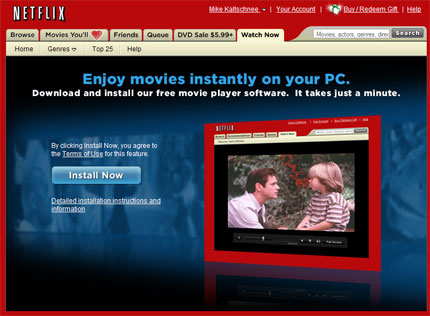
It appeared to be fun for the whole family Friday evening at this year’s Salisbury Festival. From the rides of the Midway to the block party across the river, folks from Salisbury and beyond seemed to be enjoying themselves.

More pictures to follow.

DelMarVa's Premier Source for News, Opinion, Analysis, and Human Interest Contact Publisher Joe Albero at alberobutzo@wmconnect.com or 410-430-5349

It appeared to be fun for the whole family Friday evening at this year’s Salisbury Festival. From the rides of the Midway to the block party across the river, folks from Salisbury and beyond seemed to be enjoying themselves.

More pictures to follow.
Don’t Miss the fun this WEEKEND!

Friday, April 29th (1 PM – 11 PM)
Saturday, April 30th (10 AM – 10 PM)
Sunday, (12 Noon – 5 PM)
Admission is FREE!
Free Parking in the Downtown Parking Garage all weekend!
| When President Obama unveiled his newest debt reduction plan at The George Washington University, he said once again that George W. Bush’s tax cuts were to blame for the fiscal mess he’s in. In a speech that sounded more like the kickoff to his reelection campaign than a plan to cut deficit spending, Obama could not resist blaming Bush and the Republicans for all of the economic and fiscal woes that still afflict his presidency, a tactic that worked for him in his 2008 campaign but is growing threadbare and tiresome in his third year in the Oval Office “We increased spending dramatically for two wars and an expensive prescription drug program—but we didn’t pay for any of this new spending. Instead we made the problem worse with trillions of dollars in unpaid-for tax cuts,” he said. In “the last decade, if we had simply found a way to pay for the tax cuts and the prescription drug benefit, our deficit would currently be at low historical levels in the coming years,” Obama said. Whenever Obama talks about paying for tax cuts, he means, but does not say, raising taxes on someone else. It never occurs to him, nor does he say, that the tax cuts can pay for themselves through increased economic growth and higher employment. That is exactly what President Bush’s 2003 accelerated tax cuts did in the remaining years of his presidency, a five-year period when the unemployment rate fell well below 6%, and tax revenues rose by hundreds of billions of dollars, cutting the budget deficit in half, according to government revenue and budget deficit statistics. When Bush was running for office in 2000, the economy was in the midst of a high-tech, dot-com economic boom, until the bubble burst in 2001 and the economy fell into recession. In his first year in office, Bush pushed through an across-the-board income tax cut agenda that would be phased in over several years. But as the recession worsened, unemployment—then at a low 4.7%—rose to 5.8% in 2002 and 6% in 2003. Federal tax receipts, which had hit a high of $2 trillion in 2000, fell to $1.99 trillion in 2001, to $1.85 trillion in 2002, and then to $1.78 trillion in 2003. Deciding that the economy needed a faster booster shot, Bush and Congress accelerated the Bush tax cuts in 2003, and the nation’s economy responded. Contrary to Obama’s anti-tax cut, zero-sum ideology, federal tax revenues didn’t fall as a result of Bush’s across-the-board tax rate cuts that affected every income bracket—including a new, lower 10% tax rate for low-income workers—they rose to the following: —$1.88 trillion in 2004 —$ 2.15 trillion in 2005 —$ 2.4 trillion in 2006 —$ 2.6 trillion in 2007. In other words, tax revenues rose by more than $800 billion in just four years by cutting tax rates and boosting economic growth that pushed the Dow to a record 14,164 points on Oct. 9, 2007. Meantime, unemployment fell sharply as the economy expanded, dropping to 5.55 in 2004, 5.1% in 2005, and 4.6% in 2006 and 2007. This also helped reduce Bush’s soaring budget deficits. They rose substantially during the first half of his presidency as a result of the 9/11 terrorist attacks and the deepening recession, but as federal tax revenues increased, the yearly deficits began to shrink, falling to a modest $161 in 2007—a record that Obama can only dream about. More |


Airlines have tacked on more and more fees over the years as a way to recoup costs without having to raise their base fares as much, but Frontier has broke with these seemingly relentless upward tradition and actually reduced some fees this week. Thunderclap!
Frontier is cutting the fee for changing an economy from $100 to $50. Also, travelers paying online will pay $15 for checked bags instead of $20. And the $75 flat fee for bike transport is gone. Instead, bikes will be charged the same fees as luggage.
Why would they do this? Airfarewatchdog's George Hobica told Consumerist, "Frontier is probably responding to competition from Southwest, which doesn't charge for change fees at all, and allows passengers to check two bags for free."
That's a nice use of competition, because until now I thought airlines were in a race to see who could have the most and highest fees.
from The Consumerist

The Christina School District is continuing to move forward with its plans to restructure two low-performing schools, despite the state's decision to freeze grant money intended to pay for that work, the district superintendent said Wednesday in an email to the staff.
"I want to communicate that we are moving forward with the belief that the issues we are currently facing will be resolved," Superintendent Marcia V. Lyles said in the email. "We are continuing to plan for our two Partnership Zone schools. We know we have strong plans for both Glasgow High School and Stubbs Elementary School that were developed collaboratively over many months. We believe that these plans will significantly transform these two schools and accelerate student achievement."
But some district activities would be postponed until more is known about the funding. A staff information session on Race to the Top and a parent and student "Academy Showcase" meeting -- both scheduled for May 5 -- have been put on hold.
The district's Board of Education and state government are embroiled in a dispute over a local choice to retain 19 educators at Glasgow High School and Stubbs Elementary who were to be transferred -- retaining full pay and benefits -- to new schools. The two schools are part of the state's Partnership Zone, a program that makes intensive changes at failing schools.
We recently wrote about the PIRG study showing how fewer than 40% of banks were willing to clearly disclose checking account fee schedules. Now a new report from the Pew Charitable Trust demonstrates just how far banks are willing to go to make it difficult for consumers to know what they are getting with their checking accounts.
The Pew's study looked at more than 250 types of checking accounts offered online by the ten largest banks in the United States and found that the median length of disclosure documents to be 111 pages, "consisting of account agreements, addendums to account agreements, fee schedules... Many of these documents are not user friendly, with much of the text densely printed, difficult to decipher, and highly technical and legalistic...
"In addition, the banks often used different names for the same fee or service; put the information in different documents, different media (Web or hard copy), or different locations in a document; and did not summarize or collect key information anywhere."
According to the Pew folks, the amount of text in these documents comes out to around twice what you'd find in a copy of Romeo & Juliet.
Among the other findings in the study:
• Overdraft fees will cost American consumers an estimated $38 billion in 2011—an all-time high.
• Banks reserve the right to reorder transactions in a manner that will maximize overdraft fees. "Banks can maximize the number of times an account 'goes negative' by reordering deposits and withdrawals to reduce the account balance as quickly as possible. Posting withdrawals before deposits and posting withdrawals from largest to smallest have the effect of maximizing overdrafts."
• More than 80 percent of accounts examined contain either binding mandatory arbitration agreements or fee-sharing provisions that require the accountholder to pay the bank's losses, costs, and expenses in a legal dispute regardless of the outcome of the case.
Multisource political news, world news, and entertainment news analysis by Newsy.com
The Chinese census results revealed on Thursday show some alarming trends that appear to be rooted in the country’s one-child policy.Call him the Hamburglar for the dairy crowd. An 18-year-old Virginia man was arrested earlier this week after somehow managing to slip past the Walmart greeters and loss-prevention staff with 26 gallons of milk... all while crawling around in a cow suit.
"This is probably one of the most unique efforts of shoplifting I've seen," a spokesman for the Stafford County Sheriff told InsideNova.com. "It might've been a prank that went wrong, but it isn't as funny when [the suspect] breaks the law."
While no one in the store did anything to stop the cow-suited culprit when he was strolling around the Walmart on all fours, he was spotted near the store handing out the stolen moo juice to passersby.
The belligerent bovine was later spotted "skipping down the sidewalk" in the cow suit by Walmart staffers.
He was later apprehended, out of his costume, at a nearby McDonald's (perhaps he is in cahoots with the Hamburglar?). Police found the cow garb in the suspect's car but just to make sure it wasn't the world's biggest coincidence, they took the teen back to Walmart where he was identified as the suspect.
The greatest crime here is that there is no surveillance footage of the theft.
from The Consumerist
 More than a year after receiving complaints about kickbacks from a contractor to Delaware State University employees, the state auditor's office has failed to adequately investigate the allegations, according to an outside review.
More than a year after receiving complaints about kickbacks from a contractor to Delaware State University employees, the state auditor's office has failed to adequately investigate the allegations, according to an outside review.
Auditor R. Thomas Wagner's office requested subpoenas for bank records to explore complaints that DSU facilities staff members accepted free services on their cars and homes from a heating, ventilation and air conditioning vendor, according to the documents.
DSU's facilities and purchasing are run by fellow Republican Richard C. Cathcart, a powerful former legislator and political friend of Wagner's.
The Attorney General's Office executed several subpoenas at the request of auditors and opened an investigation in early 2010, said Timothy P. Mullaney Sr., the attorney general's chief of staff. But the auditor's office never reported back, Mullaney said.
Wagner blamed the lack of progress in the investigation on sloppy work by his staff, led by former Deputy Auditor Robert Hicks. Hicks, fired by Wagner in January, said Wagner stalled the report to protect Cathcart, a former House majority leader.
Cathcart said he would not comment.
We see what Uncle Sam makes us pay every April. But a new edition of an annual report shows there’s an insidious fee we pay on a daily basis.
 We all know what last Monday was. As many of us paid Uncle Sam’s toll — mine was almost a wash, which worked out about how I wanted it — one had either a sour mood knowing that Fedzilla took more of one’s hard-earned salary or that giddy feeling of having absconded with free money because a refund was due. (In many cases, of course, that was just the money loaned to Beltway bureaucrats — interest free! Try finding a bank who will give you those terms!)
We all know what last Monday was. As many of us paid Uncle Sam’s toll — mine was almost a wash, which worked out about how I wanted it — one had either a sour mood knowing that Fedzilla took more of one’s hard-earned salary or that giddy feeling of having absconded with free money because a refund was due. (In many cases, of course, that was just the money loaned to Beltway bureaucrats — interest free! Try finding a bank who will give you those terms!)
Yet we forget there’s a hidden tax which gnaws at our pocketbooks and the economy at large every day. It was pointed out by the Competitive Enterprise Institute in their “Ten Thousand Commandments” report, released on Tax Day.
Regulations cost $1.75 trillion in compliance costs, according to the Small Business Administration. That’s greater than the record federal budget deficit — projected at $1.48 trillion for FY 2011 — and greater even than all corporate pretax profits. Says report author Wayne Crews, CEI’s vice president for policy:
Trillion-dollar deficits and regulatory costs approaching $2 trillion annually are both unsettling new developments for America. … Every year, the federal government blows past previous deficit, debt, and regulatory burdens with no end in sight. No wonder Americans are fed up with Washington.
Just think of the handicap that sucking over $1 trillion annually out of the national economy places on job creation, for regulations that normally have little to do with safety but a lot to do with selecting winners and losers. There’s a school of thought out there which believes that big business (and by that I mean Fortune 500 multinational corporations) is in bed with government to promulgate new regulations in order to discourage competition — a sort of trust-busting in reverse. Since start-up businesses have great ideas but little capital behind them, creating a maze of red tape they need to navigate before they can begin making their mark tends to discourage competition.
Editor’s Note: This excellent piece was authored by local writer / blogger Michael Swartz.